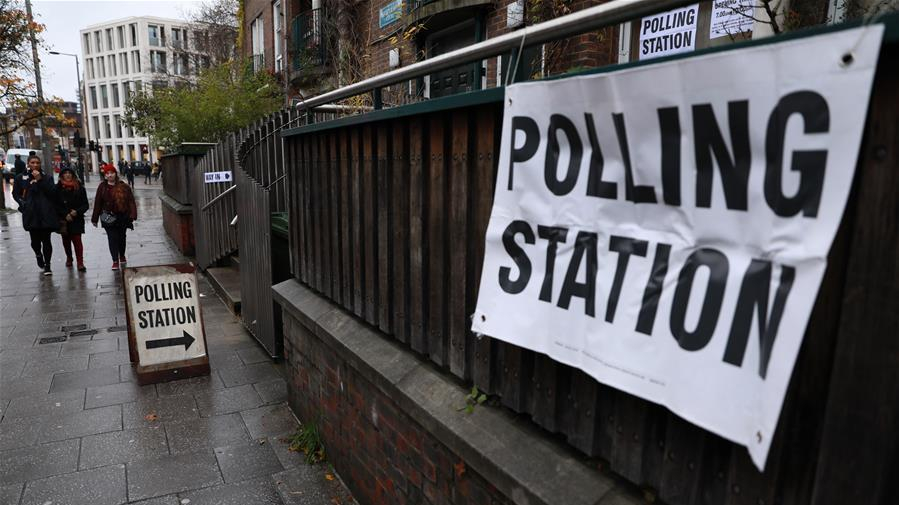UK 2019 General Election: A tale of Boris and Brexit
By Ji Xianbai | cgtn | Updated: 2019-12-14 13:50

The Conservatives swept to a landslide triumph and a single majority government in the just-finished 2019 UK General Election.
For the Conservatives, the credit goes firstly to Boris Johnson's strong and charismatic, if occasionally erratic, leadership. This election was all about Boris and Brexit. Since 2016, Johnson has personally presided over penetrating a series of three-word political slogans - "Take Back Control", "Do or Die," "Come What May," and "Get Brexit Done" – to get his pro-Brexit message across.
The 2019 election results, which significantly mirror the 2016 Brexit referendum results, suggest that his campaigning strategy has paid off handsomely.
More profoundly, Johnson's success is emblematic of the rise of retail politics. Through a not-so-Tory and not-so-ideological manifesto, Johnson pulled off a package of pragmatic policy measures that voters explicitly desired - whether it was Britain leaving the European Union (EU), investment in health care, or curbing immigration.
By contrast, Labor stuck to its conventional wholesale politics. By offering voters a blanket package that blended wanted and unwanted socialist policy elements, Labour disregarded people's specific policy appeal about pressing issues of the day.
Indeed, in several former Labor strongholds in northern England, voters swung to the Conservatives partly out of the frustration over Labour's rigid, wholesale politics as usual. Politics need to be more responsive and attentive to win votes. Sadly, Labour seems to have failed to come to terms with the tectonic shifts in the British political landscape with senior figures like Jeremy Corbyn and John McDonnell blaming Brexit for the party's defeat.
Johnson's commanding victory aside, the timing is extremely tight on Brexit, the defining issue of his upcoming premiership. He will first put together a government by next Monday, and then put his Brexit deal up for a second reading in the Parliament by December 20 so that it could be passed before Christmas.
Subsequently, the withdrawal deal will be passed onto Europe for legislation. The European Parliament will resume work on January 3 to debate and vote on the deal. If the deal passes with a simple majority, the deal will appear on the table of the European Council for political endorsement. This time, a "super" qualified majority (at least 72 percent of the remaining countries – 20 of the 27 – comprising at least 65 percent of their population) would be required. It is only if – and this is a very big if – all the required legislative procedures are concluded by the end of January that Britain may leave the EU on time in six weeks.
So, has the UK steered clear the devastating "no-deal Brexit" scenario? The answer unfortunately is no. The revised Brexit deal allows for a Northern Irish veto over the terms of Brexit, and neither of the two main local political parties – pro-Ireland Sinn Féin and pro-Union Democratic Unionist Party – are prepared to give their consent to Johnson. Even if the UK as a whole override the Northern Ireland on the Brexit deal, there is no guarantee that Britain can avoid a no-trade-deal Brexit.
In 2020, the UK will have to negotiate a new trade deal with the EU. The reality, however, is that it is exceedingly time-consuming to negotiate trade agreements.
It took Brussels three years to negotiate with Singapore, five years to negotiate with Canada – and astonishingly twenty years to negotiate with Mercosur. Assuming a four-year period is to be allocated for the EU and the UK to reach an agreement on trade as some optimistically estimated, Britain would find itself in a no-trade-deal situation for at least three years. To complicate things further, the potential EU-UK trade deal will need approvals from all EU national and regional parliaments. Johnson should be reminded that in 2016 the tiny Belgian Wallonia region (which represented approximately one percent of EU population and economic output) nearly single-handedly derailed the EU's concluded trade deal with Canada.
Winning the British general elections looks easy for Boris Johnson, but winning the hearts and minds of the European citizens across the English Channel might prove more challenging. The story of Boris and Brexit will not end with the poll results and more tests await Britain and Boris down the road.























